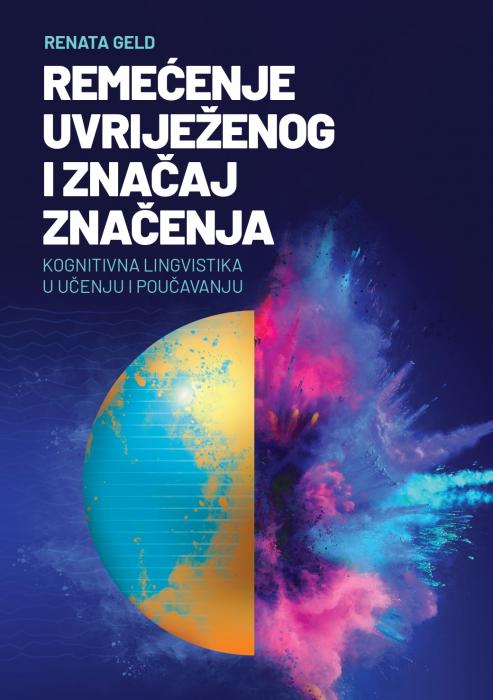Remećenje uvriježenog i značaj značenja: kognitivna lingvistika u učenju i poučavanju
Synopsis
Nastajanje ove knjige poklopilo se s lansiranjem ChatGPT-a i raspravama o tome što takav sustav umjetne inteligencije s otvorenim pristupom znači za čovjeka i društvo u cjelini. Što to znači za nastavnike i obrazovanje zacijelo je nemoguće sa sigurnošću predvidjeti, ali sasvim je jasno da se obrazovanje mora mijenjati. Autorica smatra da će uspješnost obrazovnih sustava, škola i nastavnika uvelike ovisiti o tome koliko će se usredotočiti na jedinstvenost čovjekova uma, dakle na sve ono što čovjeka čini čovjekom: emociju, svijest o sebi i drugim ljudima, kreativnost, učenje u neprestanoj interakciji s drugim ljudima i učenje kroz silnu dinamičnost i promjenjivost društvenog konteksta.
Remećenje uvriježenog koje je opisano u ovoj knjizi predstavlja miroljubivu disrupcija koja uključuje manje ili veće obrazovne zaokrete kojima je cilj osnaživanje učenikova iskustva s jedne strane te spoznajnih procesa s druge. Kada je u pitanju jezik, odnosno njegovo učenje i poučavanje, tada govorimo o neraskidivoj trijadi jezika, kognicije i iskustva. Iako se navedeno može činiti trivijalnim i/ili dobro poznatim, suvremeno obrazovanje uvelike zanemaruje iskustveno učenje, jednako kao što zanemaruje i učenikovo spoznavanje novoga i smislenu izgradnju znanja. Činjenice se učenicima nude „upakirane“ i gotove za uporabu, kao i liste pravila, organizirani sadržaji, gotova i isključiva rješenja. Autorica nudi drukčiji pristup učenju i poučavanju te skreće čitateljevu pažnju na značaj značenja, njegovu smislenu izgradnju te kognitivnu motivaciju u složenim jezičnim strukturama. Autorica daje pregled spoznajnih procesa koji su u stalnoj interakciji s jezikom, jezičnu motiviranost oprimjeruje kroz gramatiku koja se pogrešno smatra nezanimljivom listom struktura i pravila, a postavljanje pitanja ističe kao ključnu sastavnicu u izgradnji znanja.
Naposlijetku se autorica pita što je najveći obrazovni izazov. Najveći je izazov osmisliti nastavu koja će učenike odmaknuti od uvriježenog načina razmišljanja i djelovanja, ali ne nužno (i ne samo) koristeći prečice suvremene tehnologije. Tehnologija bi trebala stvoriti svojevrsni prostor proširene kognicije unutar kojega se ideje ostvaruju brže i preciznije, a učenik postaje kreativac koji je u stanju procijeniti korisnost informacije. Učenikovo odmicanje od uvriježenog načina razmišljanja moglo bi ubrzo postati presudno s obzirom na razvoj umjetne inteligencije i otvorenih sustava poput ChatGPT-a. Radi se o umjetnoj inteligenciji koja ne samo da daje precizne odgovore na činjenična pitanja i rješava matematičke zadatke, već smišlja kulinarske recepte, piše eseje i sažima znanstvene radove. Temeljno je pitanje kako iskoristiti dostupnost informacija i brzinu generiranja ideja koje nam nudi umjetna inteligencija. Upravo će odgovor na ovo pitanje odrediti smjer razvoja obrazovanja: kakva pitanja ćemo postavljati učenicima, kakve probleme će rješavati te koliko ćemo inzistirati na iskustvenom učenju koje uključuje interakciju sa svijetom koji ih okružuje i aktivira sva osjetila, individualno znanje o svijetu i svijest o svijetu.
Chapters
-
PREDGOVOR
-
0. UVODNA RIJEČ
-
1. NARUŠAVANJE UVRIJEŽENOG RAZMIŠLJANJA
-
1.1 Važno je znati zašto
-
1.2 Važno je znati kako
-
2. KONCEPTUALNA STRUKTURA I SPOZNAJNI PROCESI
-
2.1 Okviri znanja, iskustvo i jezične kategorije
-
2.2 Metafora gledanja, pažnja i perspektiva
-
2.3 Konstitucija ili geštalt
-
3. KOGNITIVNA GRAMATIKA
-
3.1 Kratka uvodna riječ
-
3.2 Engleski (i hrvatski) prezent
-
4. UDŽBENICI I (NE)IZGRADNJA ZNANJA
-
4.1 U čemu griješe udžbenici
-
4.1.1 Present Perfect i kognitivni kaos
-
5. POSTAVLJANJE PITANJA I RAZVOJ STRATEGIJA
-
5.1 Višemodalnost, predočavanje i konceptualna uloga engleskog člana ‘the’
-
6. ISKUSTVENO UČENJE, DISRUPTIVNE IDEJE I PROŠIRENA KOGNICIJA
-
6.1 Vizualna reprezentacija značenja, konceptualna integracija i disruptivna kreativnost
-
7. ZAVRŠNA RIJEČ I JOŠ NEKOLIKO MISLI O KONCEPTUALNOJ INTEGRACIJI, PRIRODI KREATIVNOSTI I POUČAVANJU
-
LITERATURA
Downloads

Downloads
Published
Categories
License

This work is licensed under a Creative Commons Attribution-NonCommercial-NoDerivatives 4.0 International License.
